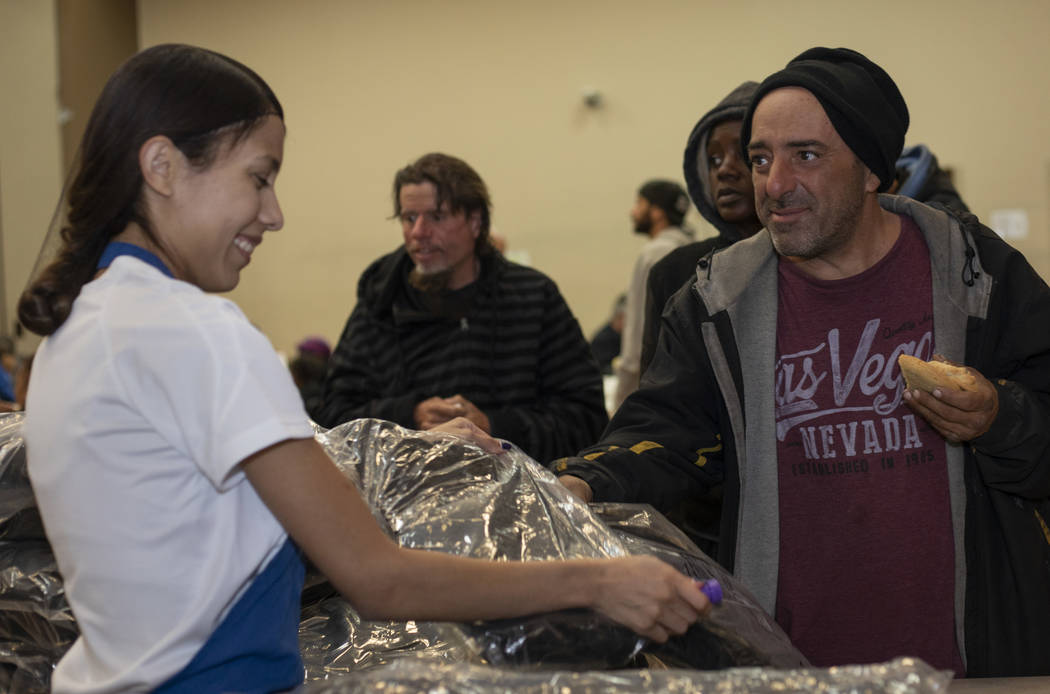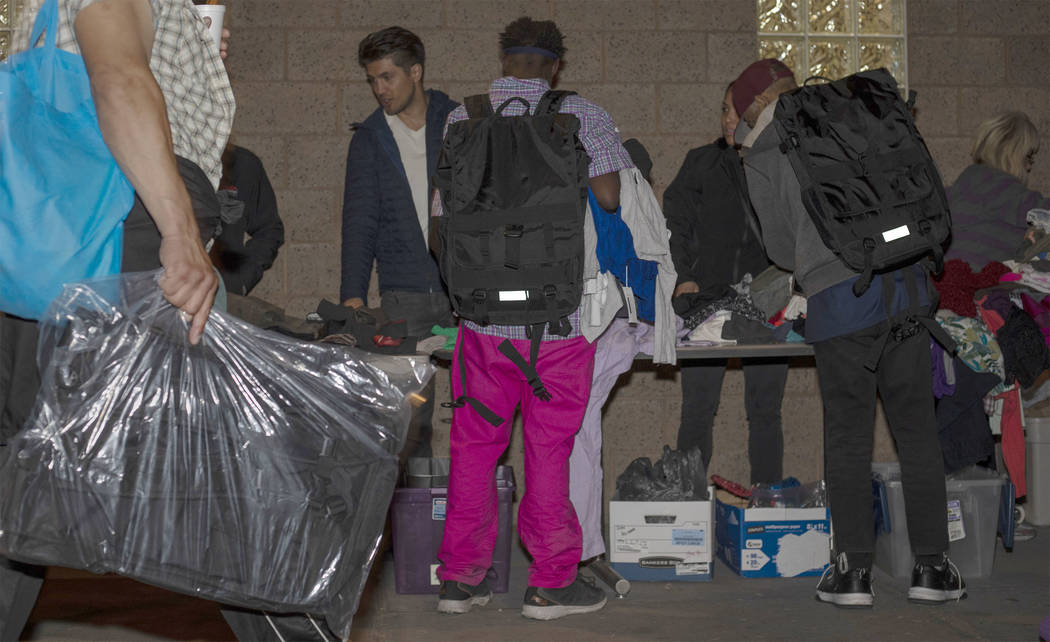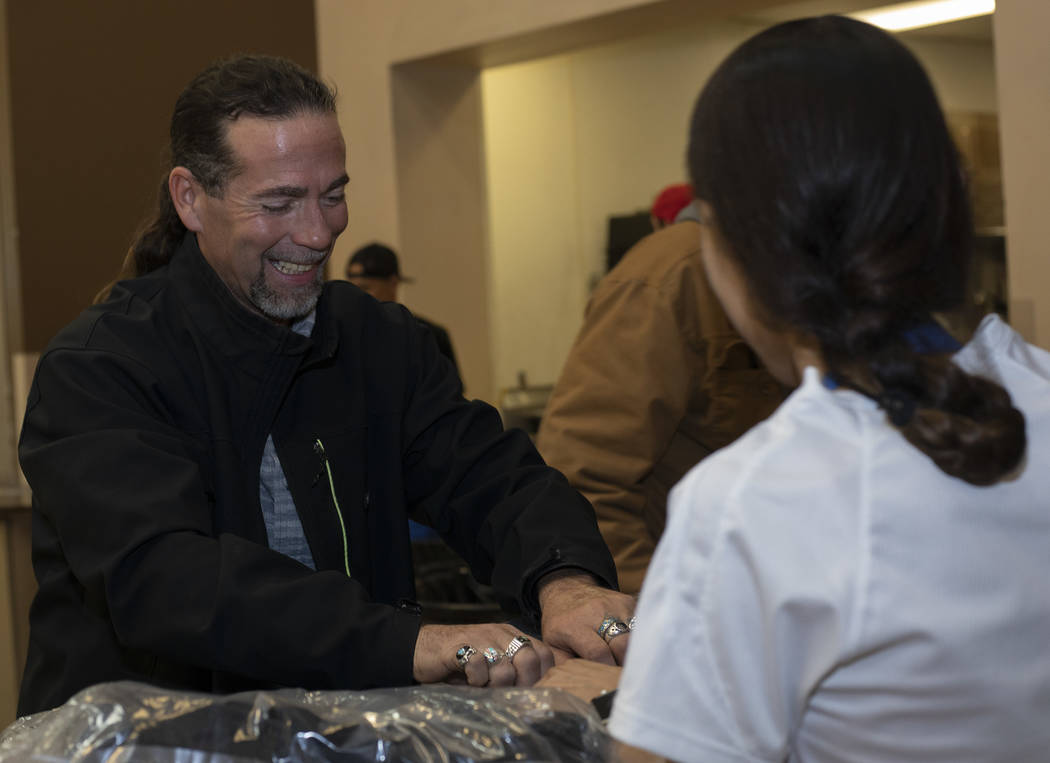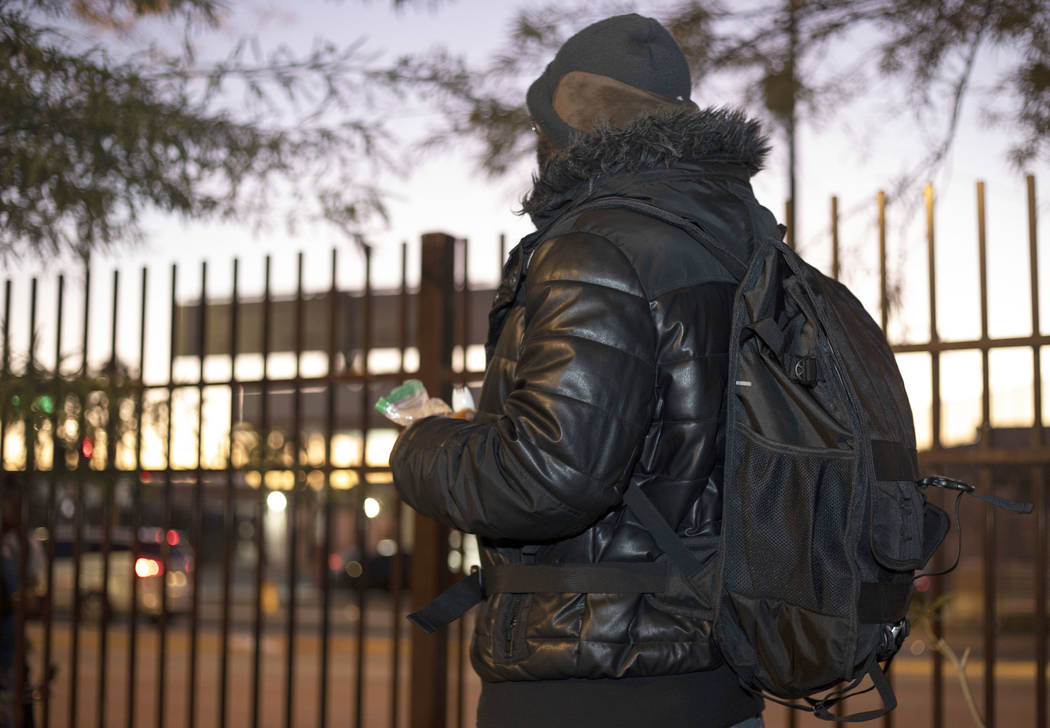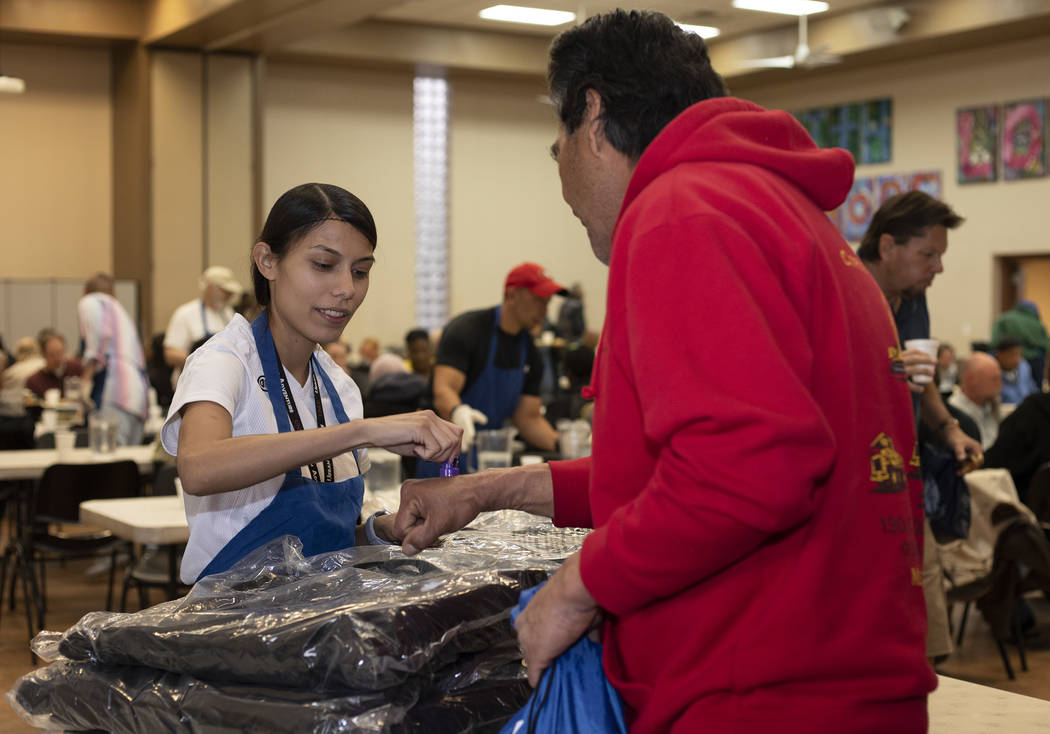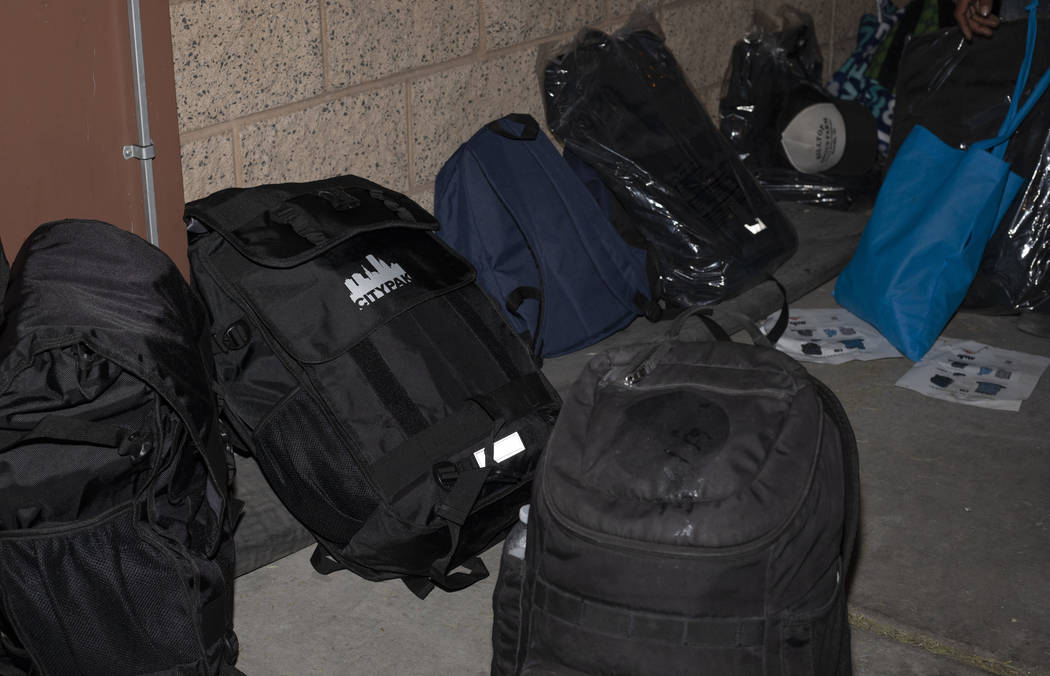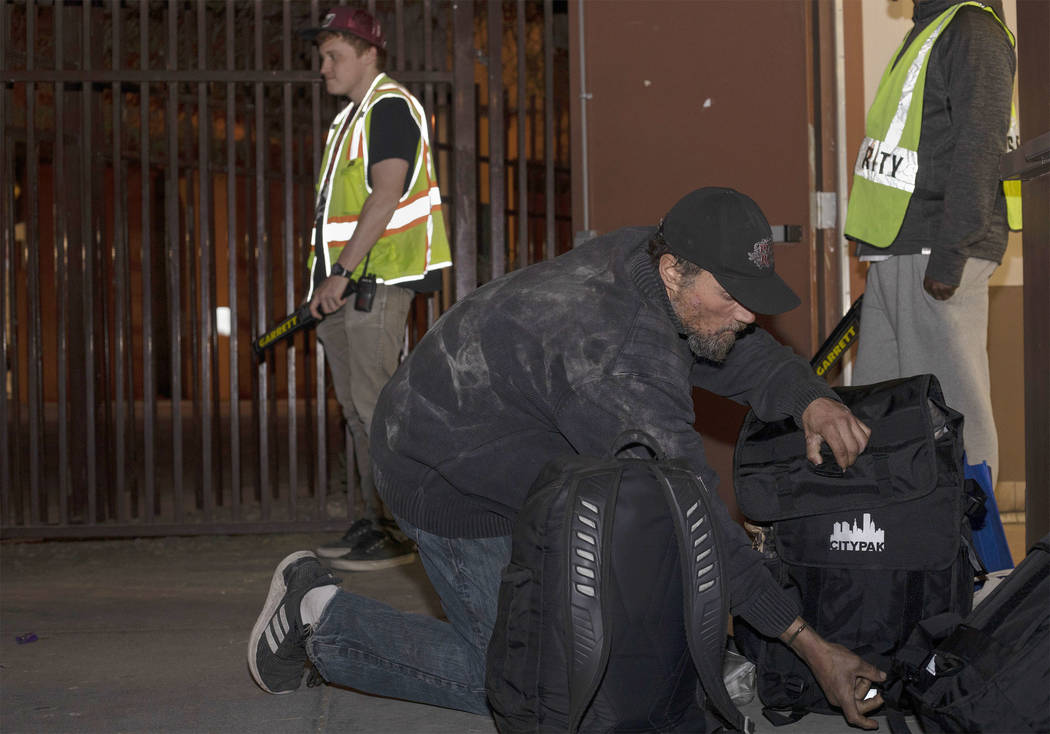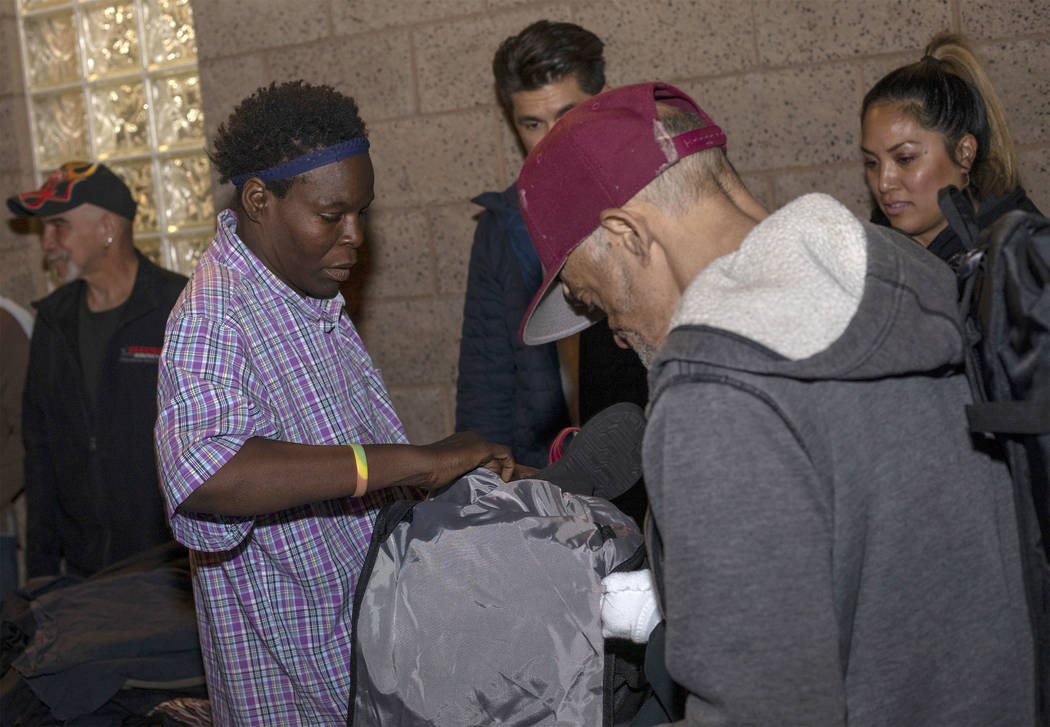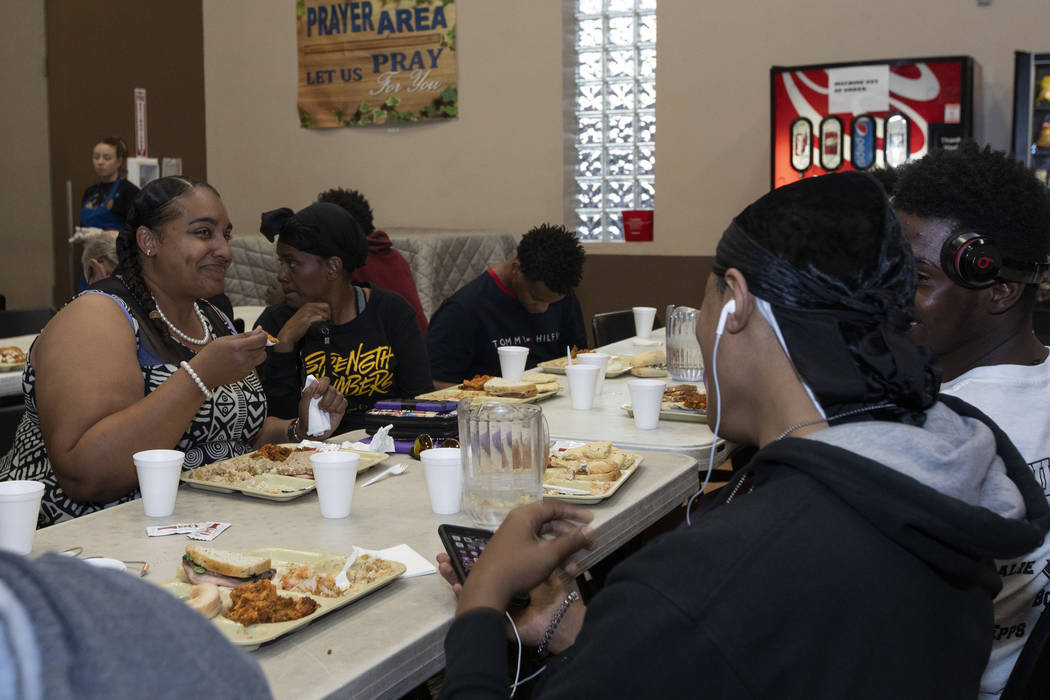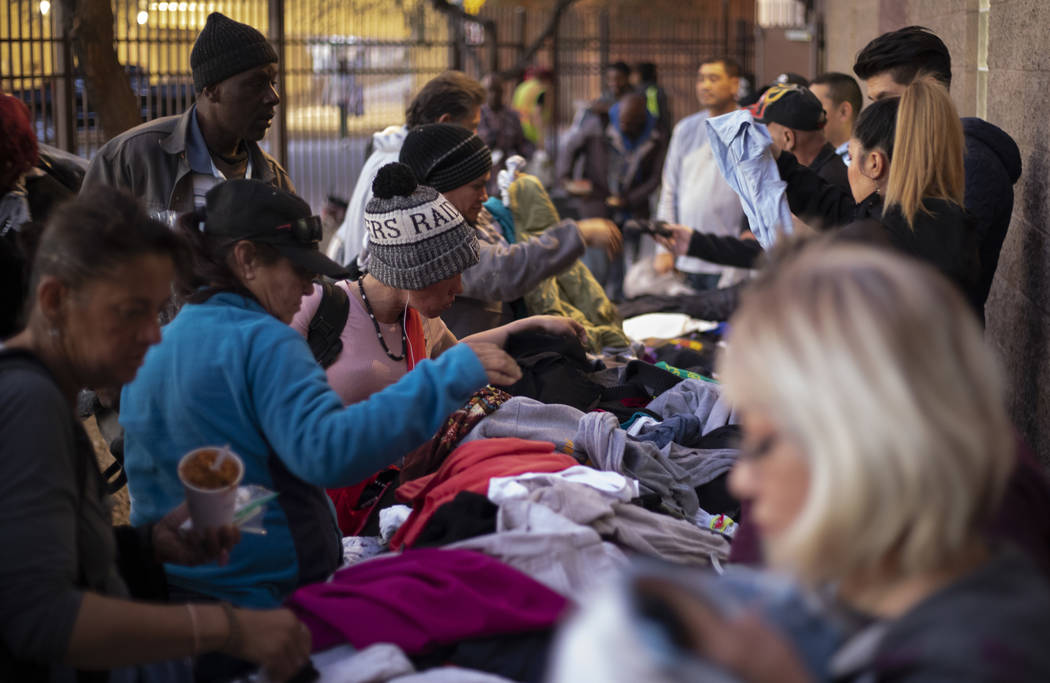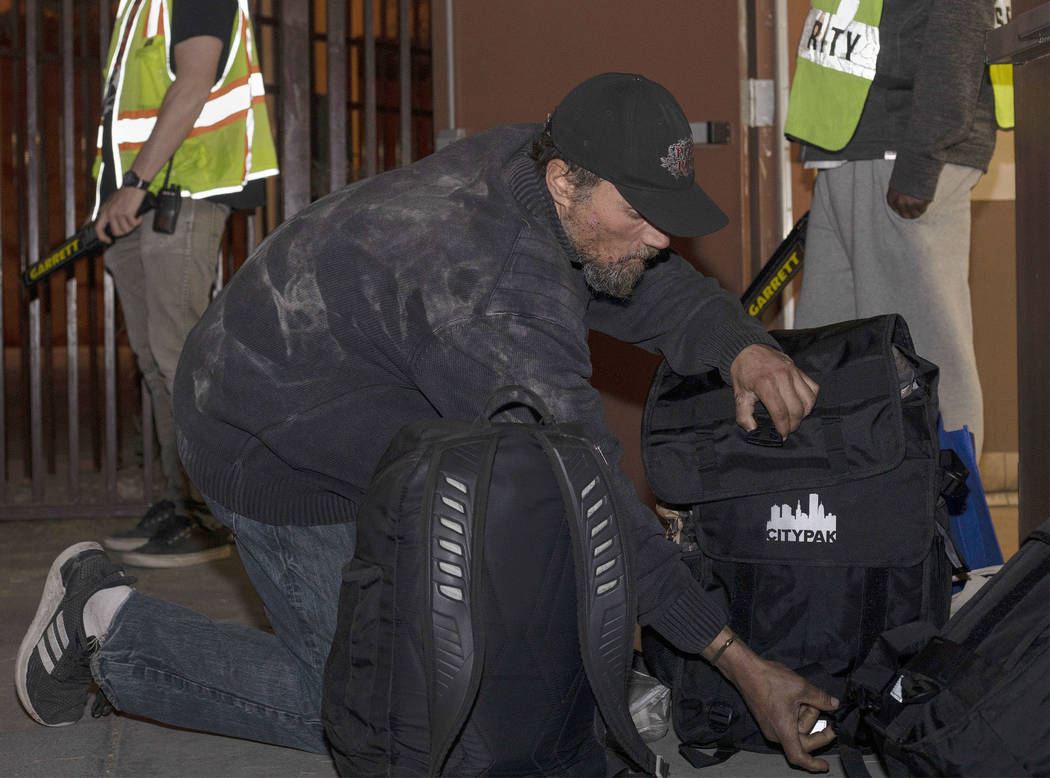Nonprofit distributes backpacks to homeless in Las Vegas
Josh Reynolds used to rely on plastic bags to carry his belongings, but they break easily.
On Saturday evening, that problem was solved, thanks to The CITYPAK Project. The nonprofit initiative held a backpack distribution event at the Las Vegas Rescue Mission.
After he finished eating dinner at the Rescue Mission’s dining hall, Reynolds — who originally is from California, but has lived in Las Vegas for 14 years — headed outside and took his new backpack out of the plastic wrap. He put it on.
“It’s a very big backpack,” he said. “I’ve been looking for one.”
The CITYPAK Project — founded in 2012 by music executive Ron Kaplan — distributes backpacks to people who are homeless. It’s an initiative of the Selma Breskin Kaplan Foundation.
Project officials say the backpacks provide a safe, secure way to store and transport belongings.
“Our goal is to make life on the streets a bit easier for people who are going through a transitional struggle of being homeless,” Kaplan said Thursday during a phone interview with the Review-Journal. He attended the distribution event Saturday.
The CITYPAK Project has donated more than 65,000 backpacks in 131 cities in three countries. The backpacks are designed and manufactured through a partnership with outdoor gear company High Sierra, which has been owned by Samsonite since 2012.
After years on the road as a musician, Kaplan became a music agent more than 30 years ago. He is an agent with Paradigm Talent Agency, a global music and entertainment company in Los Angeles that represents singers including Van Morrison, Ed Sheeran, Shawn Mendes, Billie Eilish and Halsey.
Kaplan has held distribution events in Las Vegas before, but Saturday’s event was the first at the Las Vegas Rescue Mission. He said he tries to partner with organizations in the cities he travels to for concerts.
Distribution events typically include dinner and a demonstration of the backpack’s features before they’re handed out.
“We don’t want to make a big fireworks thing about it,” Kaplan said Thursday. “It’s just about people who are in need and we want to help them.”
On Saturday, individuals got their backpacks once they were finished eating dinner at the mission.
Rugged construction
The backpacks, made of ballistic nylon, feature a cinch-top closure, anti-theft webbing loops, a reflective strip visible at night, bottom compression strap to transport bedding or other items, a soft frame, a waterproof compartment for storing paperwork and an integrated rain poncho.
Kaplan declined to disclose the value of each bag. Each organization that receives a distribution event, though, is asked to donate $22 per bag, plus the cost of shipping, he said.
When Kaplan reached out to ask if the rescue mission could contribute toward the cost of backpacks, Heather Williams, the mission’s development director, recalled that she told him the nonprofit was “in no financial position to do it.”
Instead, Kaplan did fundraising to cover the cost and had 200 backpacks shipped to the nonprofit. During the dinner Saturday, cardboard boxes full of backpacks were covered in green protective wrapping and stacked against a wall.
Up until the event, “I’ve had them under lock and key because I feel like it’s such a hot commodity,” Williams said.
She remarked on how much a backpack can help the homeless. “It’s huge for them,” she said.
A few people worried they would miss out on getting a backpack. Williams assured one man who hadn’t finished his meal yet: “It’s only when you leave. There’s plenty.”
Project beginnings
When Kaplan was running the Selma Breskin Kaplan Foundation, he wrote checks to organizations. One of them was the Chicago Coalition for the Homeless.
Kaplan, who grew up in Chicago, told the Review-Journal he noticed a pattern: People who are homeless receive items such as toiletries and clothing, but many don’t have a good way to store them and use plastic bags or old luggage.
Kaplan said he wondered if someone had ever created a backpack designed for the homeless. He met the owner of High Sierra in 2011 and asked if the company would consider partnering with him.
After introducing a prototype and getting feedback at the Chicago Coalition for the Homeless, Kaplan self-funded the first distribution of 2,000 backpacks in 2012 in Chicago.
Looking toward the future, Kaplan said he needs to hire someone to help with the project — “a real visionary thinker that can help grow our reach.” He said he also would like to see backpacks distributed through disaster relief organizations such as the American Red Cross.
Contact Julie Wootton-Greener at jgreener@reviewjournal.com or 702-387-2921. Follow @julieswootton on Twitter.



